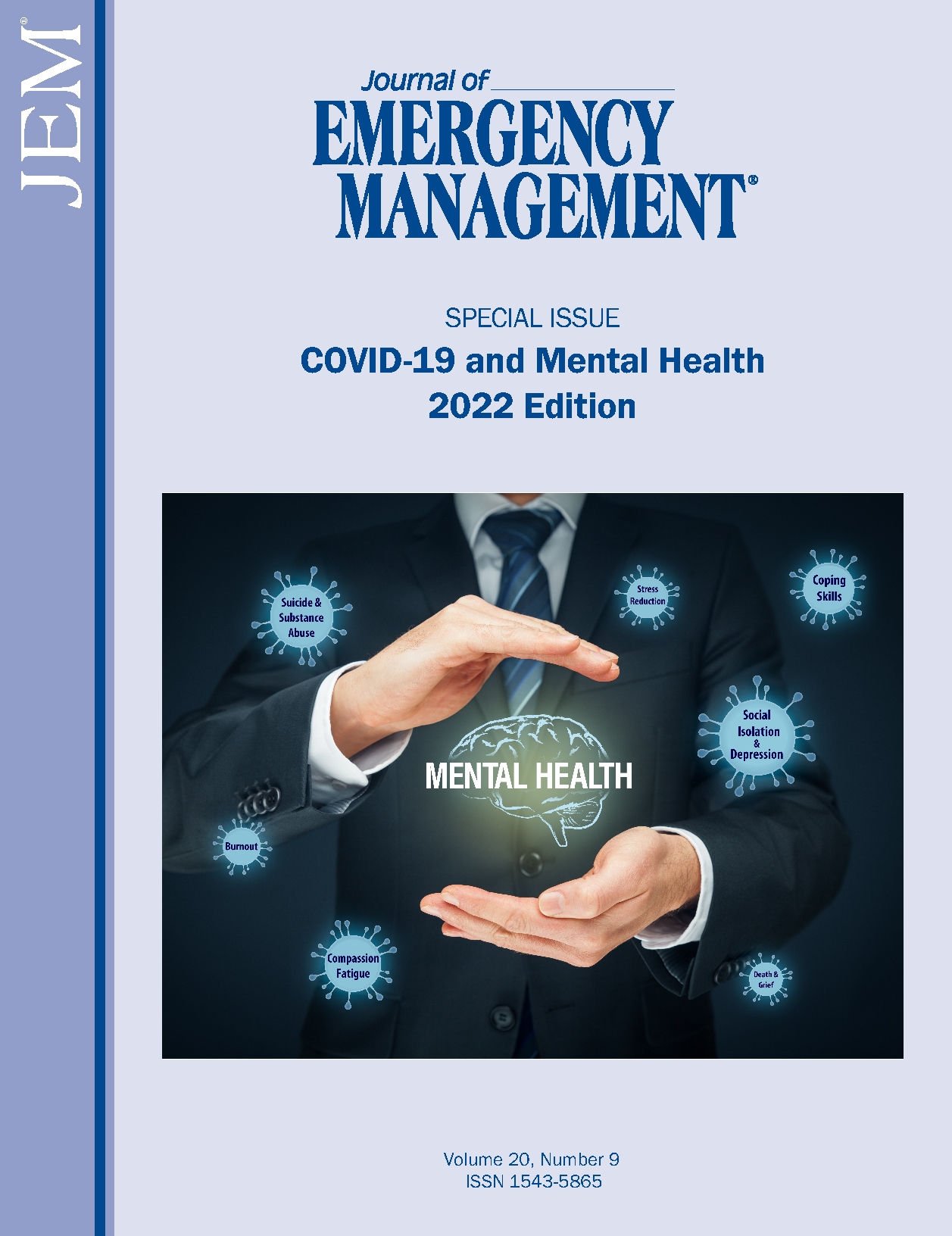Factors influencing first responders’ mental health during COVID-19
DOI:
https://doi.org/10.5055/jem.0704Keywords:
COVID-19, pandemic, first responder, mental healthAbstract
As the world adapts to the coronavirus-2019 (COVID-19) pandemic, healthcare professionals have been performing lifesaving medical interventions under intensely stressful conditions. First responders are a subset of this population that experience traumatic emergency situations daily while working in hazardous conditions during COVID-19. Past studies on first responders’ mental health have reported that post-traumatic stress disorder (PTSD) and suicidality are higher than anticipated in this population. In order to understand the factors influencing mental health in first responders during COVID-19, a survey was distributed to a convenience sample of 415 emergency responders from across the country. This survey addressed the influence of demographics and COVID-19 on cumulative PTSD and stress scores; 67 percent of survey respondents indicated that they knew another first responder who has contemplated or committed suicide, with 11 percent of respondents indicating that they themselves have suicidal tendencies. The results determined a variety of factors that influence mental health in first responders including age, gender, diagnosis of a previous mental health disorder, and career vs. volunteer departments. This study emphasizes the role that government funding plays in ensuring mental health resource access for first responders. Furthermore, this study has revealed that improved agency safeguards against COVID-19 can help reduce stress in emergency services personnel during this pandemic.
References
Heyman M, Dill J, Doughlas R: Study: Police officers and firefighters are more likely to die by suicide than in line of duty. The Ruderman Family Foundation.
Stanley IH, Hom MA, Hagan CR, et al.: Career prevalence and correlates of suicidal thoughts and behaviors among firefighters. J Affect Disord. 2015. DOI:10.1016/j.jad.2015.08.007.
Salk RH, Hyde JS, Abramson LY: Gender differences in depression in representative national samples: Meta-analyses of diagnoses and symptoms. Psychol Bull. 2017. DOI:10.1037/bul0000102.
Wetherell JL, Kaplan RM, Kallenberg G, et al.: Mental health treatment preferences of older and younger primary care patients. Int J Psychiatry Med. 2004. DOI:10.2190/QA7Y-TX1Y-WM45-KGV7.
MacKenzie CS, Scott T, Mather A, et al.: Older adults help-seeking attitudes and treatment beliefs concerning mental health problems. Am J Geriatr Psychiatry. 2008. DOI:10.1097/JGP.0b013e31818cd3be.
Fitzpatrick AL, Powe NR, Cooper LS, et al.: Barriers to health care access among the elderly and who perceives them. Am J Public Health. 2004. DOI:10.2105/AJPH.94.10.1788.
Health Professional Shortage Areas. Health Resource & Services Administration. Available at https://data.hrsa.gov/topics/healthworkforce/shortage-areas. Accessed November 30, 2020.
Wagner SL, O’Neill M: Mental health implications of volunteer fire service membership. Disaster Prev Manag An Int J. 2012. DOI:10.1108/09653561211234499.
Downloads
Published
How to Cite
Issue
Section
License
Copyright 2007-2023, Weston Medical Publishing, LLC and Journal of Emergency Management. All Rights Reserved








